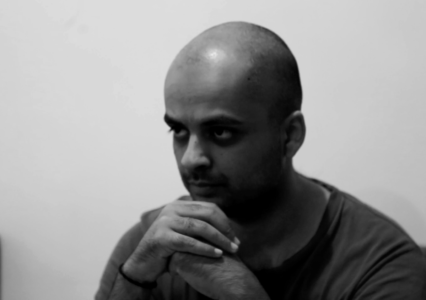
Canadian Islamic State sniper broke two anti-terrorism laws
A Toronto man violated two Canadian anti-terrorism laws when he travelled to Syria and joined an ISIS sniper team, the RCMP alleged in a Top Secret document unsealed by the Ontario court.
In the document, the RCMP told a judge Muhammad Ali left Canada to join ISIS in 2014, and participated in the activities of the extremist group — both terrorism offences.
“Ali used his social media to promote ISIS propaganda and recruit for ISIS,” Bill Bentley, a member of the RCMP’s Toronto Integrated National Security Enforcement Team, wrote in the document.
“Ali served as a sniper for ISIS.”
A 31-year-old Canadian citizen, Ali grew up in Mississauga, Ont., after immigrating with his parents from Pakistan. He attended Ryerson University and worked in northern B.C. before crossing into Syria in April 2014.
He was captured by U.S.-backed Kurdish fighters in 2018 and is still detained in Syria, but the document shows the charges likely awaiting him should he return to Canada.
Ali and his wife, Rida Jabbar, are among more than a dozen Canadian adults detained at prisons and camps in northeastern Syria for suspected ISIS members and their families.
The Liberal government has declined to repatriate Canadian detainees from the region, and a House of Commons petition urging Ottawa to bring them home, launched by the father of Jack Letts, has garnered scant public support.
The details of the RCMP’s investigation of Ali were sealed by the court when they were filed by police in October 2019, but can now be reported after Global News sought their public release.
They show that while the RCMP has been investigating Canadian ISIS members captured on the battlefield, it has relied partly on the work of journalists rather than sending its officers to Syria.
After Global News interviewed Ali in Syria in 2018, the RCMP obtained a production order from the Ontario Superior Court requiring the news outlet to hand over the unedited recordings of the interview.
Global News challenged the production order in court. But after losing a related case, in which the RCMP sought the recordings of a Global News interview with ISIS member Mohammed Khalifa, the news organization did not pursue the matter.
However, Global News was able to secure the public release of a redacted version of the 28-page summary of the investigation that was used to obtain the production order.
It shows the RCMP investigation began in July 2014 with a report of a “possible high-risk traveller” — the term for someone “travelling abroad for the purposes of terrorism.”
The investigation focused on posts that began appearing on Twitter on June 28, 2014, under the name Abu Turaab, who claimed “he was stationed near Raqqah,” the ISIS capital in Syria.
On July 11, 2014, Abu Turaab changed his Twitter handle to Abu Turaab al-Kanadi, Arabic for “the Canadian,” and began posting ISIS propaganda, the RCMP alleged.
Based on the posts, Abu Turaab was labelled by the RCMP “as being a threat related to the national security of Canada.”
The RCMP’s Tactical Internet Operational Support unit linked the name Abu Turaab to the Skype account of a Mississauga resident, and positively identified Ali through a “driver’s licence query,” the court document said.
Photos Ali had posted online months before leaving Canada led police to Fort Nelson, B.C., where he had allegedly worked for a Calgary-based company that services oilfield wells.
“Abu Turaab was identified as a Canadian citizen named Muhammad Ali from Mississauga, Ont. who was promoting pro-ISIS propaganda,” the RCMP wrote in its warrant application.
“This identification came as a result of the RCMP analysis of many similar Twitter accounts and monikers, plus other social media sites which were also used by Ali.”
Between 2010 and 2015, he used eight Twitter accounts, including @AlTuraab, @FatherofDuust and @4buTuraabIS, the RCMP alleged.
A “suspicious transaction report” by FINTRAC, the Financial Transactions and Reports Analysis Centre of Canada, also showed Ali made three email money transfers totalling $3,300, the RCMP alleged.
The last one occurred weeks after he had left Canada, according to the court document. The recipients of the transfers were not indicated in the RCMP document.
The affidavit was sealed by a judge after the RCMP argued it should be classified “Top Secret” because it contained information about Canada’s national security.
“I believe the disclosure of the information in this affidavit would compromise the nature and extent of this investigation and other investigations, domestically and internationally,” it said.
The potential charges listed by the RCMP each carry a maximum 10-year sentence.
More than three years after he was caught, Ali is among four Canadian men held by the Syrian Democratic Forces. At least nine Canadian women and their children are also detained at camps for ISIS families.
Canada has repatriated two children to date, as well as one woman. She was arrested by the RCMP on a terrorism peace bond upon arrival at the airport on Nov. 22, but was later released.
Otherwise, the government has declined to repatriate the detainees, arguing the region is unsafe for Canadian officials.
On Oct. 4, the United States took custody of one of the Canadian detainees, Mohammed Khalifa. He was flown to Virginia, where he pleaded guilty on Dec. 10 to conducting executions for ISIS and narrating its propaganda videos.
The RCMP had also served a production order on Global News for a copy of its interview with Khalifa, conducted in Syria in 2019. Global News opposed the seizure of its materials, but an Ontario judge ruled against the news agency.
In 2018, Vice News was similarly ordered to give the RCMP its correspondence with the late Calgary ISIS member Farah Shirdon, after unsuccessfully appealing the matter in the Supreme Court.
Source: Global News





